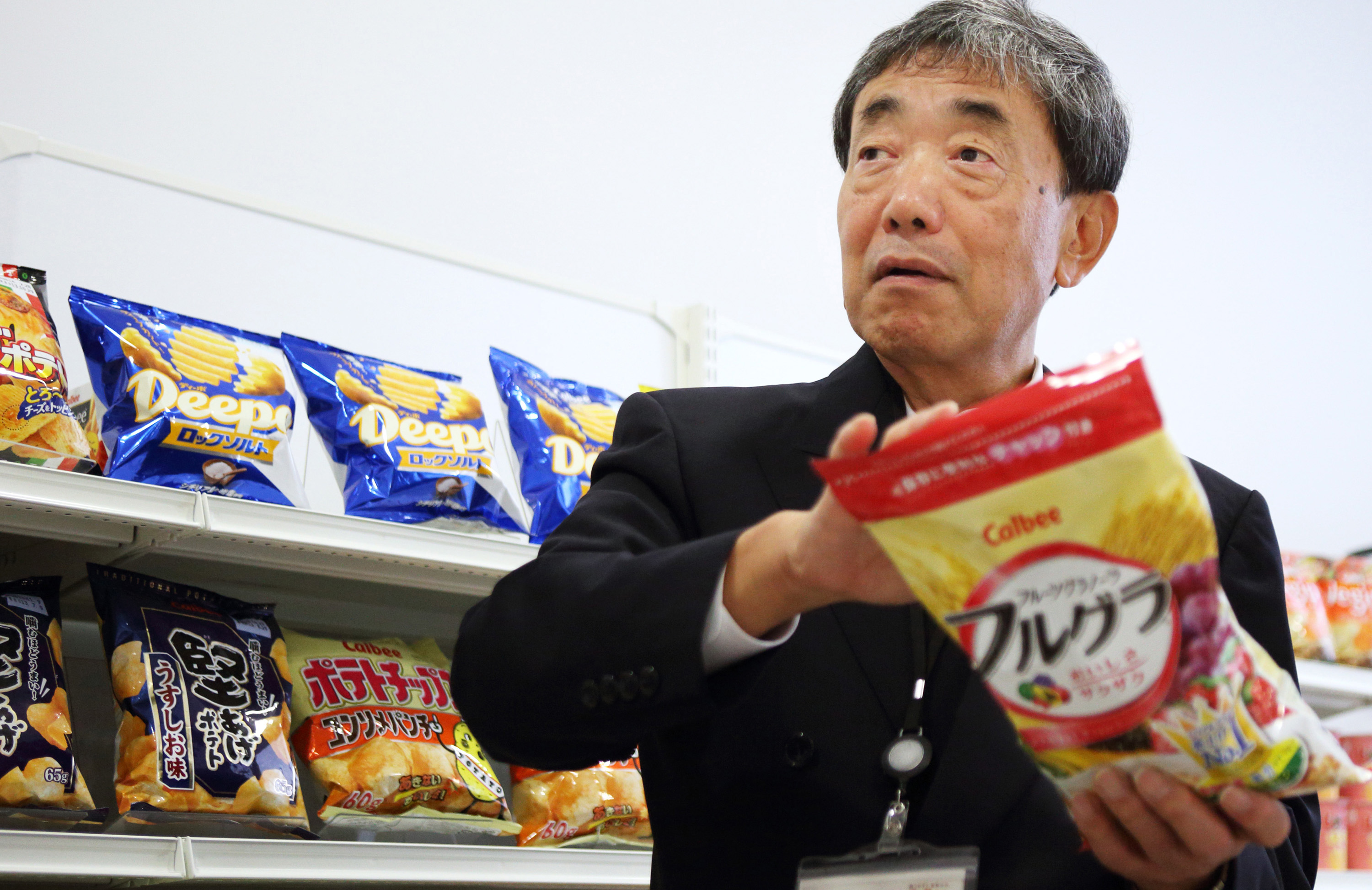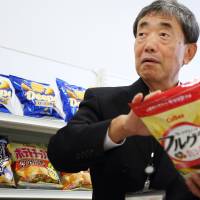Grilled fish, steamed rice and miso soup are disappearing from the nation's breakfast tables as more households opt for a less time-consuming way to start the day: granola.
Sales of the oven-baked mix of grains, dried fruit and nuts, until recently a rarity on supermarket shelves, soared to almost 47,500 tons last year, from less than 7,000 tons in 2010, according to the Japan Snack Cereal Foods Association. Rice consumption, meanwhile, has been falling for decades.
That's helped operating profits at Japan's largest granola manufacturer, Calbee Inc., to almost triple to more than ¥28 billion in the year to March, compared with ¥9.5 billion in fiscal 2009. Calbee is planning to increase its sales of granola 2.3-fold to ¥50 billion by about 2019.
The tendency to opt for cereal comes as more Japanese women enter the workforce, leaving them less time to prepare elaborate meals in the morning. The country's consumption of rice has halved in the past 50 years as bread and pasta also take growing shares of the market. Sales of other types of breakfast cereal, such as cornflakes and brown rice flakes, have changed little in recent years.
Time-pressed working women and health-conscious elderly consumers are leading the change, according to Calbee spokesman Masaya Kawase.
"There are social factors behind this," Kawase said. "Japan has a lot more households where both partners work. We think the need to save time is the biggest factor." Health considerations are also playing a part, he added.




















With your current subscription plan you can comment on stories. However, before writing your first comment, please create a display name in the Profile section of your subscriber account page.